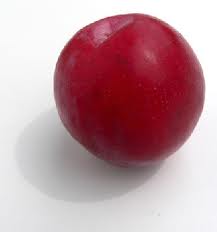 The plum, while native to China, was also discovered as a wild plant in the New World. Historic figures have extolled the nature of the fruit, from Confucius to Alexander the Great. The plum made its ways along the spice route from China to ancient Greece, where it was quickly adapted to the climate of the Mediterranean. From here, it was slowly introduced to the northern part of Europe, then onto the New World. Surprisingly, the plum was already in the New World. Native plums were found in the southern United States, indicating the true age of this fruit as being impressively ancient. While the European and American plants are not related, their cross cultivation has created some delicious varieties.
The plum, while native to China, was also discovered as a wild plant in the New World. Historic figures have extolled the nature of the fruit, from Confucius to Alexander the Great. The plum made its ways along the spice route from China to ancient Greece, where it was quickly adapted to the climate of the Mediterranean. From here, it was slowly introduced to the northern part of Europe, then onto the New World. Surprisingly, the plum was already in the New World. Native plums were found in the southern United States, indicating the true age of this fruit as being impressively ancient. While the European and American plants are not related, their cross cultivation has created some delicious varieties.
Key Nutrients
Plums provide a great amount of vitamin C, B1, B2 and B6. It is also a great source of fiber and phenolic compounds.
Health Benefits
Vitamin C – Regular consumption of foods rich in vitamin C helps the body develop resistance against infections and scavenges harmful, pro-inflammatory free radicals. Vitamin C also helps to prevent respiratory problems such as asthma and lung cancer. Vitamin C has been shown to lower blood pressure, and therefore lessen the probability of hypertension.
Vitamin B1 – Thiamine is an important vitamin since it breaks down sugars in the body. Thiamine also helps to support nerve and heart health.
Vitamin B6 – Vitamin B6 helps to keep your immune system in good working order. It aids in the breakdown of fats, carbohydrates and amino acids while helping to maintain the health of lymph nodes. Additionally, vitamin B6 helps to regulate blood glucose levels.
Vitamin B9 – Folate is an important vitamin for liver function.
Vitamin B12 – Vitamin B12, or folic acid, helps to preserve neurological function and DNA synthesis. It also plays a key role in the health of red blood cells. The nervous system relies on vitamin B12 for proper function as well.
Dietary Fiber – Dietary Fiber stimulates digestion and peristalsis, helping to relieve indigestion and constipation problems.
Season
Plums are in season during the summer months. With this said, commercial varieties can be found year round.
Nutrition Information
Per 1 Fruit (66 grams):
Calories (cKal): 30
Protein (grams): .46
Total Fat (grams): .18
Carbohydrates (grams): 7.54
Fiber (grams): .9
Buying and Storing
When buying plums, make sure the fruit is soft to the touch and free of blemishes. When storing at home, plums can be stored in your refrigerator for up to one week.
Best Way to Add to Diet
Plum makes a great afternoon snack when served by itself. Additionally, try adding some plum slices to your favorite cereal for a bit of extra taste and texture. A plum sauce, typical of Asian cooking, can enhance a stir fry or fish dish.
Plum Recipe
Plum Marinated Pork Tenderloin

 Not Sure What Healthy Foods To Eat?
Not Sure What Healthy Foods To Eat? This week we take a look at one of my favorite healthy foods...the mighty Avocado.
This week we take a look at one of my favorite healthy foods...the mighty Avocado.
No comments yet.